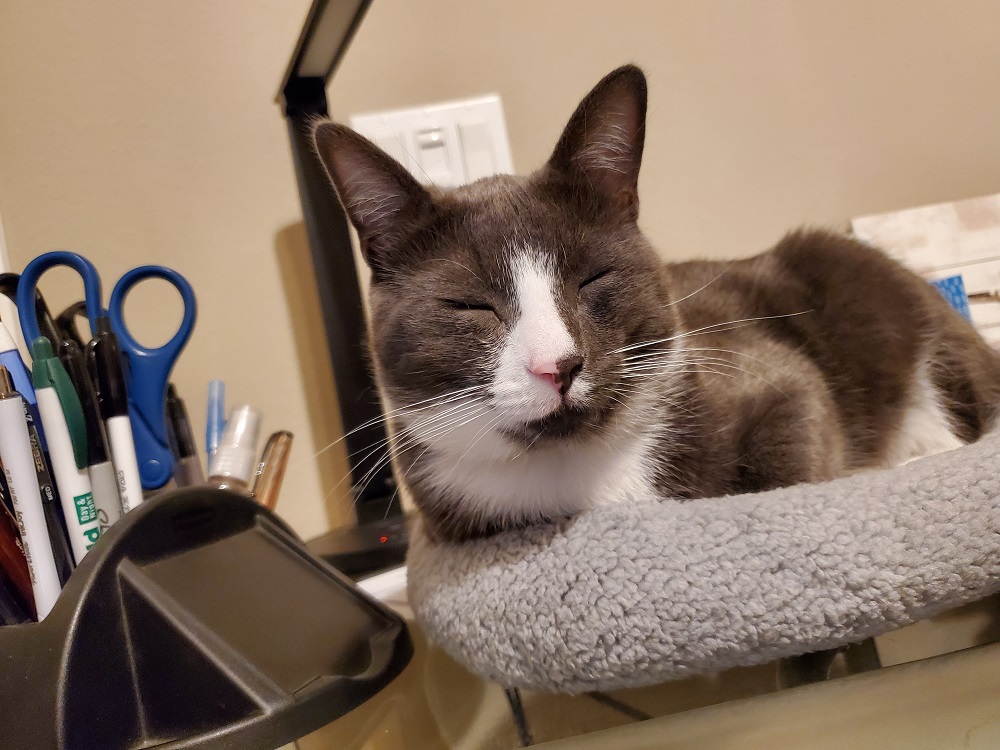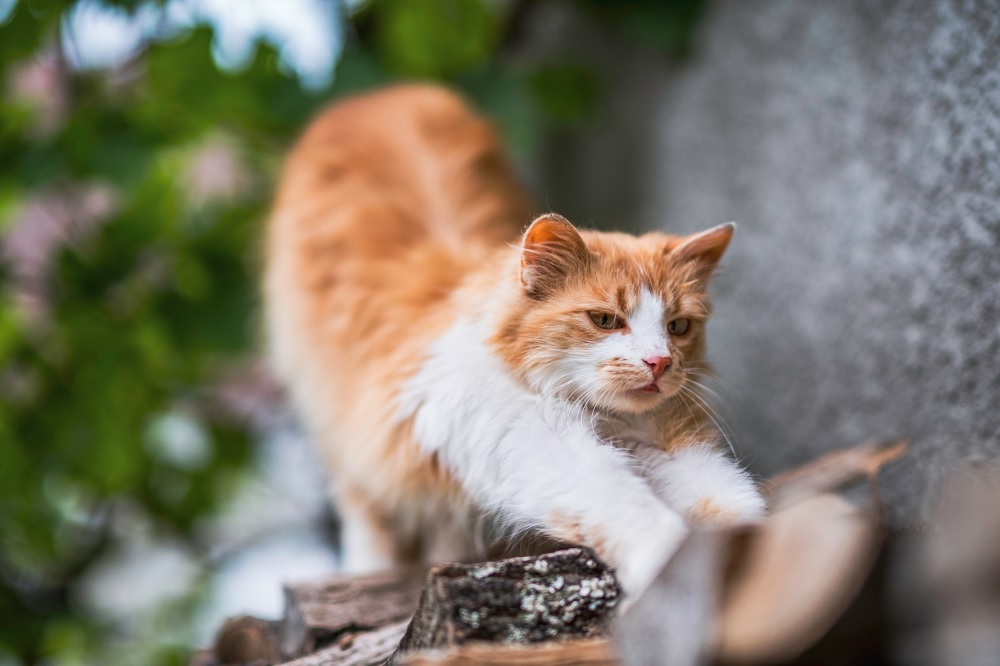If you’ve ever walked past your cat only for them to stop, puff up, and form the shape of a furry croissant, congratulations. You’ve just been treated to the arched back display. It’s one of the most iconic feline moves out there, but also one of the most misunderstood.
So what’s behind that sudden spinal gymnastics routine? Whether your cat is trying to scare someone off or simply enjoying a good stretch, there’s always a message in that arch.
Let’s take a closer look at what it means and when you should pay extra attention.
The Classic Arch: A Mix of Instinct and Communication
When a cat arches its back, it’s rarely just random. In fact, it’s usually a carefully choreographed part of their body language toolkit.
In some cases, the arch is about defense. Your cat is trying to look bigger, scarier, and more intimidating. In others, it’s just a really satisfying stretch. And sometimes, it’s a sign that your cat is in a playful mood and wants you to get involved.
Like most feline behavior, context is everything.
When It’s About Fear or Defense
One of the most common reasons cats arch their backs is because they’re startled or scared. This is when you see the full Halloween-cat effect: arched back, puffed-up fur, stiff tail, and possibly a little sideways hop for dramatic effect.
This is your cat trying to send a clear message: “Back off.” By puffing up and arching, they appear larger and more threatening. It’s a survival instinct, rooted in their wild ancestry.
You’ll usually see this reaction during:
- Sudden loud noises
- Surprise encounters with other animals
- Unfamiliar people or environments
- A dog who got a little too close
If your cat does this frequently or seems unusually jumpy, it could be a sign of underlying anxiety. In those cases, it’s worth chatting with your vet.
Related read: How Cats Breathe Under Blankets and Why They Love It So Much.
When It’s Just a Really Good Stretch
Sometimes the arch isn’t about fear at all. It’s just about feeling good.
Cats are master stretchers, and the arched back stretch is part of their regular routine. You’ll often see it after they wake up from a nap or after sitting in one position for a while. It’s like their version of a full-body yoga pose.
In this case, the posture will look much looser. No puffed-up fur. No side-eye. Just a graceful little spine wave that says, “Ahhh, that’s better.”
When It’s Part of Play Behavior
Yes, cats can be dramatic even when they’re having fun.
During playtime, especially with other cats or with toys, you might see a sudden arch followed by a sideways bounce. It looks like they’re trying to act tough, but it’s more of a mock display than a real threat.
Kittens do this all the time as part of their social learning. They’re practicing their pounce and defense moves in a safe setting. Adult cats sometimes keep this habit because, well, it’s fun.
The giveaway here is the rest of their body language. If the tail is twitching playfully and the ears are forward or neutral, your cat is just feeling frisky.
When It Might Mean Something’s Wrong
If your cat is arching their back while walking stiffly, crying, or trying to avoid being touched, that could be a sign of pain. Cats are pros at hiding discomfort, but changes in posture are often one of the few visible clues.
Conditions that can cause this kind of posture include:
- Arthritis
- Spinal issues
- Abdominal discomfort
- Injury or trauma
If the arched posture seems prolonged or unusual, or if your cat seems lethargic, it’s time to check in with a veterinarian.

Oh, you humans and your endless fascination with my arching back! Let me spill the beans: sometimes I do it because I’m feeling feline-fantastic, other times I’ve just spotted that sneaky laser dot, and once in a while, it’s all about getting the perfect cat-stretch in. But mostly? I do it to keep you guessing, because a little mystery never hurt anyone! 🐾 #KeepingHumansOnTheirToes #MysteryMeowMoves #ArchingForTheGram
Winston
How to Respond to an Arched Back
What you should do depends entirely on the reason behind the arch.
- If it’s fear-based, give your cat some space. Let them calm down on their own terms.
- If it’s a stretch, admire their flexibility and move on.
- If it’s play, grab a toy and join the fun.
- If it looks like pain, make an appointment with your vet.
In general, reading the rest of your cat’s body language, their tail, ears, and eyes, will help you figure out what the arch is trying to say.
Final Thoughts
The arched back is a classic cat move with multiple meanings. It can be playful, defensive, instinctive, or just a luxurious stretch after a long nap. Like most feline behaviors, it’s rarely random. Your cat is always communicating. You just have to know what to look for.
Whether they’re striking a spooky pose or just limbering up for a nap in the sun, one thing’s for sure: cats never do anything halfway.
Sources:
Understanding Cat Body Language https://www.humanesociety.org/resources/understanding-cat-body-language
Why Do Cats Arch Their Backs? https://www.petmd.com/cat/behavior/why-do-cats-arch-their-back
Feline Body Postures Explained https://www.vet.cornell.edu/departments-centers-and-institutes/cornell-feline-health-center/resources-publications/cat-health-topics/body-language
Recent Posts
Explore why cats sleep so much, including the evolutionary reasons and the health benefits they derive from their extensive sleep patterns.
Explore the causes of cat dandruff, its implications, and effective ways to deal with it so your feline friend remains happy and healthy.


